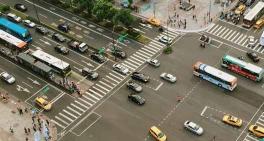Lawyers will seek to shift blame for warehouse fire at trial
U.S. Court News
Lawyers for the two men charged in the Northern California warehouse fire that killed 36 people said Friday they are now preparing for a trial where they will try to shift blame for the blaze from their clients to others, including the building's owner and government officials.
Derick Almena, 48, and Max Harris, 28, on Friday appeared briefly in an Oakland courtroom for the first time since a judge scuttled a plea deal agreed to by prosecutors. They were ordered back to court in three weeks to schedule a trial.
Outside court, the men's lawyers say there's plenty of blame to share for the Dec. 2, 2016, fire in an Oakland warehouse illegally converted into an underground entertainment venue and live-work space for artists. The cause of the fire has never been determined, which the lawyers said is key part of the men's defense.
Serra also said numerous government officials visited the illegally converted warehouse before the fire, and they had a duty to report the building's condition to authorities. Almena lived in the warehouse with his wife and three children and were visited by Alameda County's Child Protective Services officials several times. Oakland police officers were also called to the warehouse on several occasions to investigate noise complaints and tenant disputes, among other issues.
Related listings
-
Wisconsin court to rule on conservative professor's firing
U.S. Court News 07/06/2018The Wisconsin Supreme Court is set to rule on whether Marquette University was correct to fire a conservative professor who wrote a blog post criticizing a student instructor he believed shut down discussion against gay marriage.John McAdams sued the...
-
Police shooting of boy spurs more protests, appeals
U.S. Court News 06/28/2018Protesters demonstrated Friday for a third day over the fatal police shooting in Pennsylvania of an unarmed black teen fleeing a traffic stop as they sought to get the attention of a nation engrossed by the immigration debate, and to pressure officia...
-
Police shooting of boy spurs more protests, appeals
U.S. Court News 06/24/2018Protesters demonstrated Friday for a third day over the fatal police shooting in Pennsylvania of an unarmed black teen fleeing a traffic stop as they sought to get the attention of a nation engrossed by the immigration debate, and to pressure officia...

Any contracts or any transactions can go awry at any time
We know your business means a lot to you and want to understand all the aspects of your business so that we can help you in the best ways possible. We don’t discriminate depending on the size of your company. Our mission statement is to represent all business owners and entrepreneurs by navigating them through the rough waters of business litigation and guiding them to success.
We are attorneys who want to make sure we understand your business objectives and goals before we start providing you with legal counsel individualized to your business. We know what it means to be dedicated to your business. After all, we are a business as well. And just like you, we want to provide the best service we can to our clients.
Any contracts or any transactions can go awry at any time. Sometimes, making important business decisions without legal help from business attorneys could cost you your business.We don’t want you or your business to be misconstrued by anyone. Our attorneys make sure that we communicate with you often to make sure we are giving you the legal guidance you need at all times. We make sure we are responsive in a timely-manner with every single one of our clients to help them identify risks and prevent legal battles before they arise.




